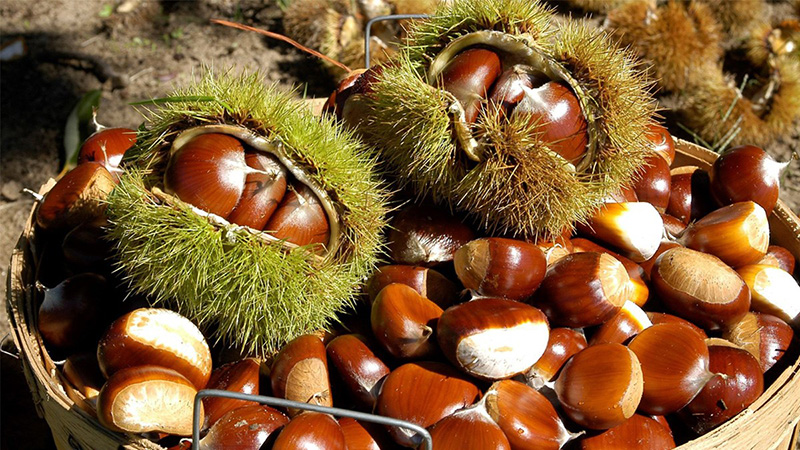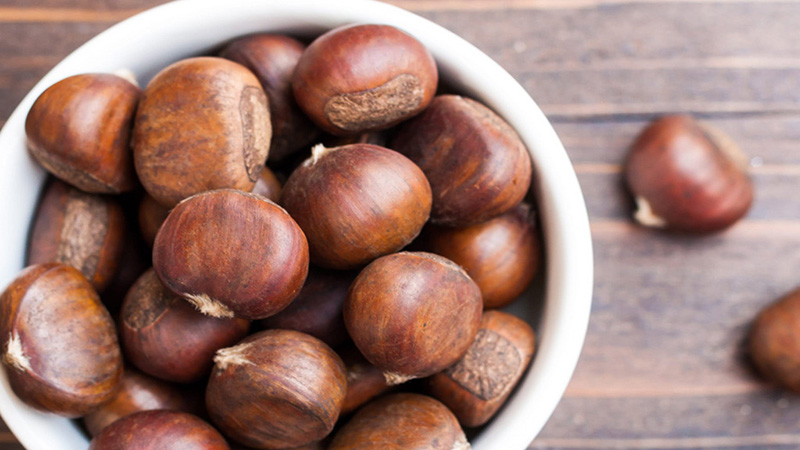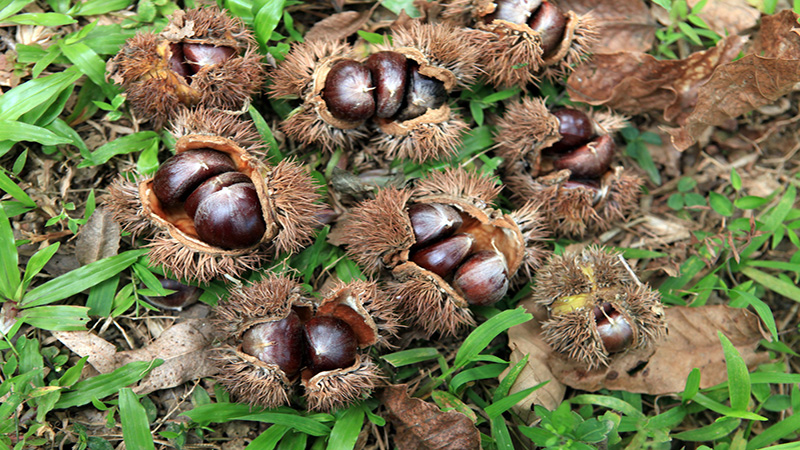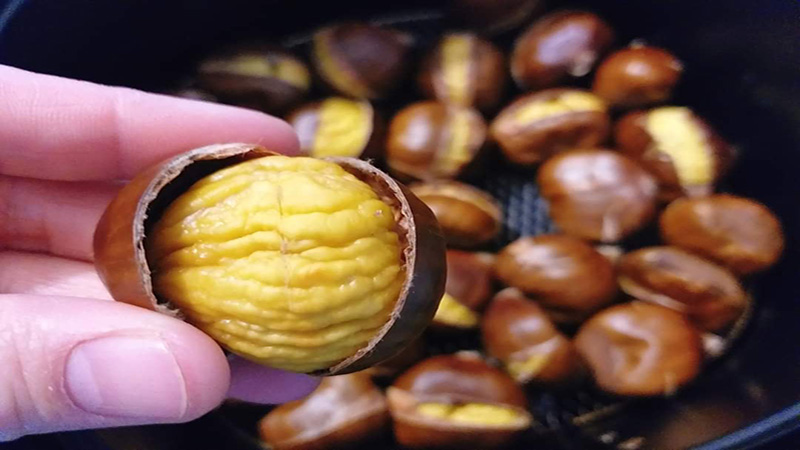How many calories are in chestnuts? Do chestnuts make you fat? In addition to these basic questions about chestnuts, you may also wonder about their caloric content and whether or not they cause weight gain. Let’s delve into these queries and explore the world of chestnuts!
1 How many calories are in 100g of chestnuts?
100 grams of chestnuts provide approximately 131 calories, with a significant contribution coming from fat (according to Dr. Nguyen Thi Luyen, a specialist in Obstetrics and Gynecology). This caloric content is considered moderate compared to other foods.
 100 grams of chestnuts provide approximately 131 calories
100 grams of chestnuts provide approximately 131 calories
However, the calorie count can vary depending on the preparation and ingredients used. Here are some examples:
– Boiled chestnuts: 120 calories/100g
– Roasted chestnuts: 145 calories/100g
– Chestnut cake: 193 calories/100g
In addition to calories, 100 grams of chestnuts also offer 2 grams of protein, 28 grams of carbohydrates, 5.1 grams of fiber, and various vitamins and minerals. These nutrients provide essential energy and nourishment for your body.
2 Do chestnuts make you fat?
Theoretically, chestnuts will not cause weight gain as 100 grams contain about 130 calories, and our daily calorie intake is typically around 2,000 calories.
Although chestnuts are high in starch and fat, these substances are beneficial for your health when consumed in moderation.
Additionally, chestnuts are a good source of fiber, which helps curb appetite and creates a feeling of fullness. Thus, incorporating chestnuts into your diet in moderate amounts is unlikely to lead to weight gain.
 Do chestnuts make you fat?
Do chestnuts make you fat?
However, if you consume chestnuts frequently and in large quantities, weight gain is inevitable. Therefore, it’s essential to be mindful of your overall calorie intake to maintain a healthy weight.
The calorie content of chestnuts also depends on their preparation. More elaborate recipes with various ingredients can contribute to weight gain, while simpler preparations may have less impact.
3 Is it healthy to eat a lot of chestnuts?
Chestnuts are nutrient-rich, but it’s best to consume them in moderate amounts, such as 10 chestnuts per day.
 Is it healthy to eat a lot of chestnuts?
Is it healthy to eat a lot of chestnuts?
Excessive chestnut consumption can lead to weight gain, stomach irritation, and potential issues with the liver and kidneys. Therefore, it’s advisable to enjoy chestnuts in moderation to maintain optimal health.
4 Benefits of chestnuts
Heart-healthy
 Beneficial for heart health
Beneficial for heart health
Chestnuts contain essential nutrients like potassium, as well as vitamins B6 and B12, which support cardiovascular health and maintain a stable, robust heart. They also boost your immune system and overall resilience.
Combat fatigue and weakness
 Help fight fatigue and weakness
Help fight fatigue and weakness
Chestnuts are a good source of protein and starch, providing a substantial energy boost. They also contain vitamins B6 and B12, which help alleviate stress and combat physical weakness.
Kidney health
 Support kidney function
Support kidney function
Chestnuts aid the excretory system by facilitating the elimination of toxins from the body. This process also helps prevent the formation of kidney and bladder stones.
Antioxidant properties
 Rich in antioxidants
Rich in antioxidants
Chestnuts contain antioxidants that fight against aging and protect your bones, joints, and internal organs.
5 How to eat chestnuts to support weight loss at home
To indulge in chestnuts while maintaining your weight, it’s best to limit your intake to 10 chestnuts per day. Spread out your consumption throughout the day to ensure optimal energy absorption by your body.
 Limit your intake to 10 chestnuts per day
Limit your intake to 10 chestnuts per day
Additionally, if you’ve consumed a large portion of chestnuts, you can balance it out by engaging in energy-expending activities like exercise or vigorous housework.
6 Precautions when eating chestnuts
When enjoying chestnuts, keep the following in mind:
– If you have a history of allergies to nuts, consult your doctor before consuming chestnuts.
– Eat chestnuts in moderation to prevent weight gain and obesity.
 Some precautions to keep in mind when eating chestnuts
Some precautions to keep in mind when eating chestnuts
– Chestnuts contain tannic acid, which can irritate the stomach and affect the liver and kidneys if consumed in large quantities.
– Opt for fresh, non-moldy chestnuts with a clear origin.
We hope you found this article informative! If you’re a chestnut enthusiast, be sure to give it a read.
Source: International Medical Clinic






























